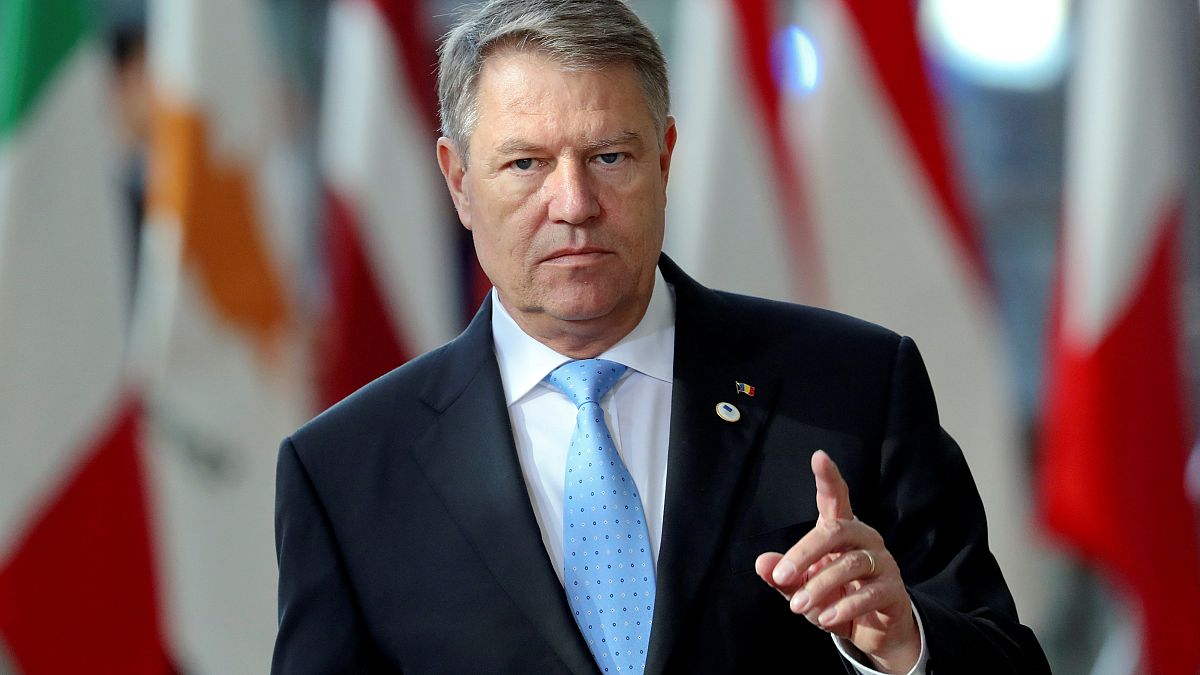Iohannis, who called the controversial referendum, has accused the PSD of a sustained "assault on justice" and trying to undermine the rule of law.
Romanian President Klaus Iohannis has urged voters to "teach [the ruling Social Democratic Party (PSD)] a lesson" and back him in next month's referendum on proposed legal changes that critics say would weaken the country's anti-corruption laws.
Iohannis, who called the controversial referendum for May 26, has accused the PSD of a sustained "assault on justice" and trying to undermine the rule of law.
"The Romanian government is trying to protect some of its high officials and critics here say that all these changes are made... to the benefit of the head of the Social Democrats Party who has some legal challenges right now," journalist Mari Jeanne Ion told Euronews.
"All this concerns corruption cases. Washington as well as Brussels are concerned that in Romania the rule of law is not going to be enforced from now on and we're going back to a period of time when this country was not a member of the European Union."
In January, the ruling party PSD tried to decriminalise some corruption offences, including abuse of office, defined as officials not doing their jobs properly and causing damage.
Earlier this month, MPs approved criminal law changes that could shut down several ongoing high-level corruption cases.
The bills are the latest in a series of legal and personnel changes made by the ruling Social Democrats (PSD) since they came to power in 2017.
The moves are seen as threats to judicial independence and have drawn criticism from the European Union, the US State Department and thousands of Romanian magistrates.
One of the changes approved on Wednesday shortens the statute of limitations covering some offences, a move that would automatically shut down a number of ongoing cases.
Other amendments include lower sentences for some offences and decriminalising negligence in the workplace.
President Iohannis is proposing a ban on the use of amnesty or pardon for officials convicted of corruption and a ban on the use of emergency ordinances in the implementation of justice reform.
Graft is a serious problem in Romania, which is considered by Transparency International as one of the European Union’s most corrupt states.
Thousands of Romanians protested across the country in March against the decriminalisation of corruption acts.
